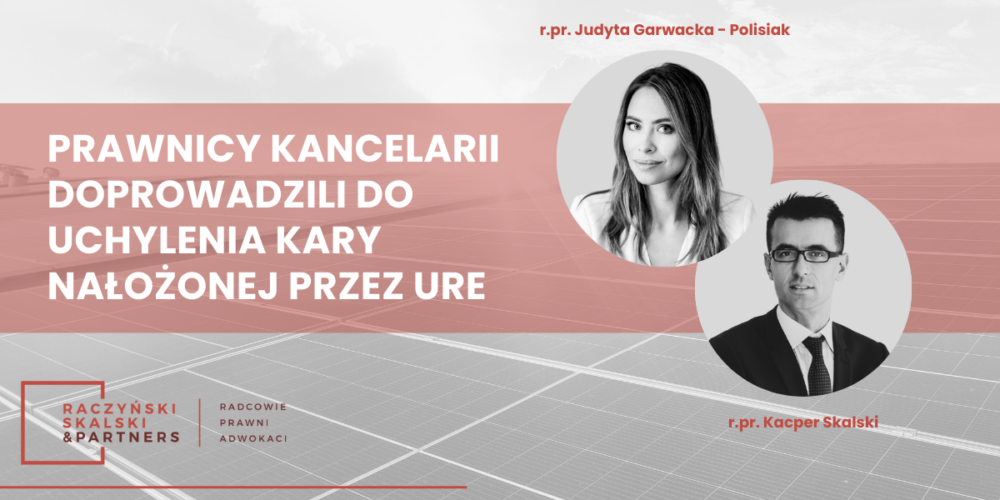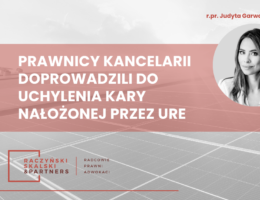The Court of Appeals in Warsaw, in a judgment dated March 28, 2024, dismissed in its entirety the appeal against the ruling of the District Court in Warsaw on the appeal against the decision of the President of the Energy Regulatory Authority to impose a penalty of PLN 10,000 on the entrepreneur for failure to comply with the obligation under Article 70 item. 2 of the RES Act.
The firm’s lawyers represented a prosumer engaged in the production and processing of natural stones, who has a micro-installation for the generation of electricity. He sells the energy generated from it to one of the energy sellers. The ERO President asked the law firm’s client to send information on the sales of electricity made in the 2016 period and the fulfillment of obligations to obtain and present certificates of origin or certificates of origin of agricultural biogas for redemption to the ERO President, or the payment of substitute fees.
The client of the law firm did not understand why the summons was addressed to him, in a situation where he believed that he was not the entity obliged to provide information, and consequently did not comply with the office’s summons. This led to the initiation of administrative proceedings by the ERO, resulting in a large fine against the generator.
As a result of effective representation of the law firm’s client based on the citation of extensive argumentation in favor of the unreasonableness of the penalty imposed by the ERO, the court of first instance divided the appeal in its entirety, indicating that the demand sent to the prosumer was not precisely formulated by which the prosumer was entitled to consider that it was not addressed to him. According to the court, the facts of the case indicated inconsistency on the part of the office and a lack of uniform practice on the part of the ERO.
The court stated that the act of failing to submit Attachment 1A, classified in the Decision as a failure to comply with the obligation under Article 70(2) of the RES Act, cannot be attributed to the generator in a situation where, firstly, ERO makes an imprecise and even objectively misleading demand to the prosumer to submit the said attachment, and secondly, ERO itself presents a contradictory position in the framework of obtaining certain information from energy generators.
In addition, the court noted that imposing excessively harsh penalties on renewable energy producers in micro installations is contrary to the objectives of the Law on Renewable Energy Sources and violates the public interest. Given that Poland’s international obligations under the EU impose an obligation on the country according to which by the end of 2020 20% of the energy generated in Poland should come from renewable sources, it is particularly important to facilitate energy generators to take such actions.
However, the actions taken by the ERO had the opposite effect, and this kind of practice may discourage economic activity of electricity generators, who, fearing high fines, choose not to install renewable energy sources as part of their business, which contradicts the idea of concern for entrepreneurs who generate energy from such sources.
The law firm’s client was represented by legal counsel Kacper Skalski and legal counsel Judyta Garwacka – Polisiak.



